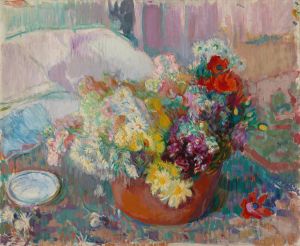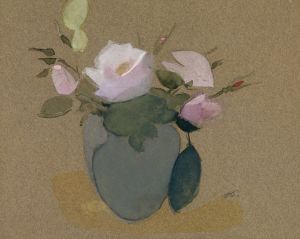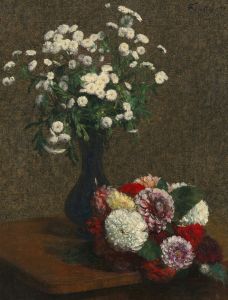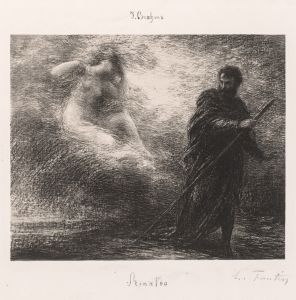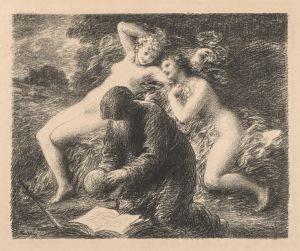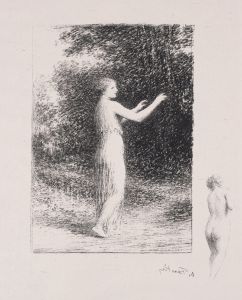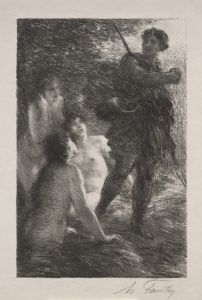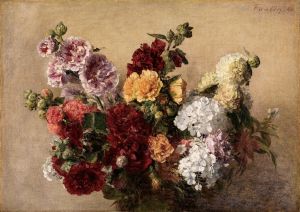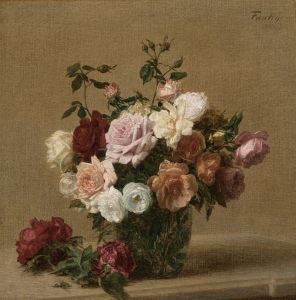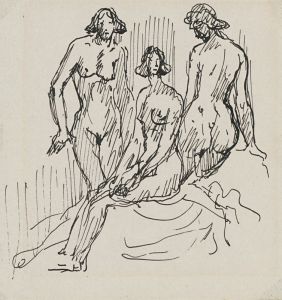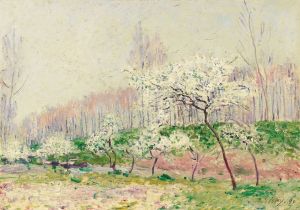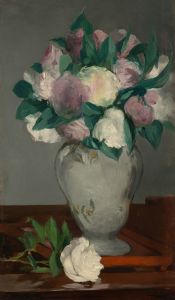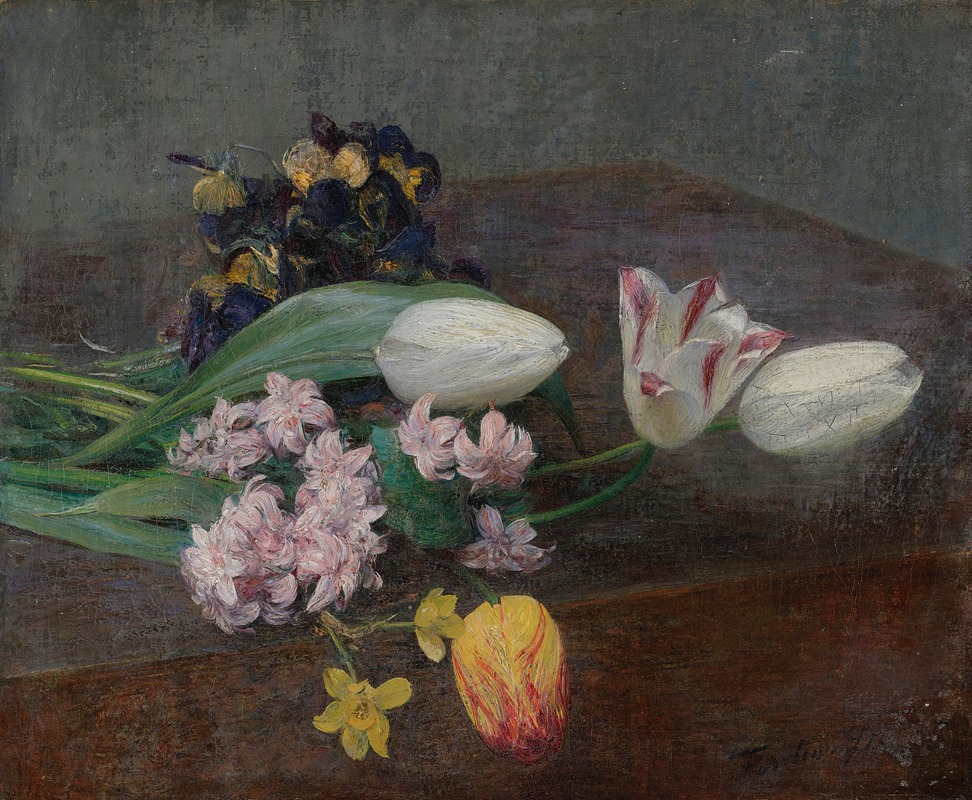
Jacinthes, Tulipes Et Pensées Posées Sur Une Table
A hand-painted replica of Henri Fantin-Latour’s masterpiece Jacinthes, Tulipes Et Pensées Posées Sur Une Table, meticulously crafted by professional artists to capture the true essence of the original. Each piece is created with museum-quality canvas and rare mineral pigments, carefully painted by experienced artists with delicate brushstrokes and rich, layered colors to perfectly recreate the texture of the original artwork. Unlike machine-printed reproductions, this hand-painted version brings the painting to life, infused with the artist’s emotions and skill in every stroke. Whether for personal collection or home decoration, it instantly elevates the artistic atmosphere of any space.
Henri Fantin-Latour was a renowned French painter known for his exquisite still life paintings and portraits. One of his notable works is "Jacinthes, Tulipes Et Pensées Posées Sur Une Table," which translates to "Hyacinths, Tulips, and Pansies on a Table." This painting exemplifies Fantin-Latour's mastery in capturing the delicate beauty of flowers, a subject he frequently explored throughout his career.
Fantin-Latour was born on January 14, 1836, in Grenoble, France. He moved to Paris in 1850, where he studied at the École des Beaux-Arts and honed his skills in drawing and painting. Although he initially attempted to gain recognition through historical and mythological paintings, it was his still lifes and portraits that eventually brought him acclaim.
"Jacinthes, Tulipes Et Pensées Posées Sur Une Table" is a testament to Fantin-Latour's ability to render floral arrangements with remarkable realism and sensitivity. The painting features a carefully arranged bouquet of hyacinths, tulips, and pansies, placed on a simple table. The composition is characterized by its attention to detail, subtle use of color, and the interplay of light and shadow, which lend the flowers a lifelike presence.
Fantin-Latour's approach to still life painting was influenced by the Dutch masters of the 17th century, particularly their emphasis on realism and meticulous detail. However, he also brought a unique sensibility to his work, often infusing his floral compositions with a sense of tranquility and introspection. This is evident in "Jacinthes, Tulipes Et Pensées Posées Sur Une Table," where the serene arrangement invites viewers to appreciate the inherent beauty of the natural world.
Throughout his career, Fantin-Latour maintained a close association with the Impressionists, although he did not fully embrace their techniques. He was friends with several prominent artists of the time, including Édouard Manet, Edgar Degas, and James McNeill Whistler. Despite these connections, Fantin-Latour's style remained distinct, characterized by its adherence to traditional techniques and its focus on capturing the essence of his subjects.
In addition to his still lifes, Fantin-Latour was also known for his portraits, which often depicted his friends and contemporaries in the art world. His ability to convey the personality and character of his sitters further established his reputation as a skilled and versatile artist.
Fantin-Latour's work, including "Jacinthes, Tulipes Et Pensées Posées Sur Une Table," continues to be celebrated for its technical excellence and aesthetic appeal. His paintings are held in high regard by art historians and collectors alike, and they can be found in major museums and galleries around the world.
Henri Fantin-Latour passed away on August 25, 1904, in Buré, France. His legacy endures through his contributions to the art of still life painting and his influence on subsequent generations of artists. "Jacinthes, Tulipes Et Pensées Posées Sur Une Table" remains a fine example of his ability to capture the ephemeral beauty of flowers, a testament to his enduring talent and artistic vision.





